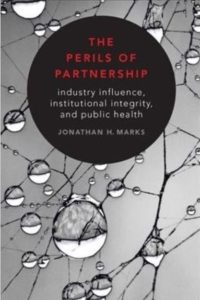Industry-funded study of the week: chocolate milk for teenage athletes
After the debacle over Fifth Quarter Fresh that I wrote about in Unsavory Truth, you might think that sellers of chocolate milk would stop trying to prove it anything other than a sugary milk drink. But no, here’s another one.
Chocolate Milk versus carbohydrate supplements in adolescent athletes: a field based study. Katelyn A. Born, Erin E. Dooley, P. Andy Cheshire, Lauren E. McGill, Jonathon M. Cosgrove, John L. Ivy and John B. Bartholomew. Journal of the International Society of Sports Nutrition (2019) 16:6.
Method: “Participants were randomly-assigned to receive either CM [chocolate milk] or CHO [carbohydrate] immediately post-exercise.”
Conclusion: “CM had a more positive effect on strength development and should be considered an appropriate post-exercise recovery supplement for adolescents.”
Funder: Dairy MAX [“nonprofit dairy council representing more than 900 dairy farm families across seven states”].
Comment: The premise of this study is that drinks containing a combination of carbohydrate and protein have been shown to provide better recovery from vigorous exercise than drinks containing carbohydrate or protein alone. Chocolate milk contains both. This study compared it to a carbohydrate-only sports drink, making this an excellent example of how to design a study to give you the desired result.



